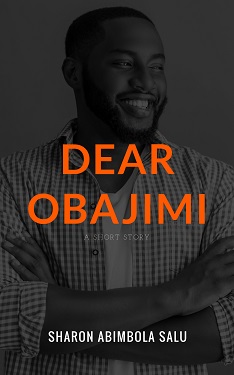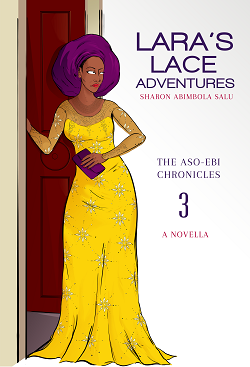Welcome to a brand new week! I hope 2016 is looking up for you in every possible way. 🙂 Today, I will be sharing another episode of our ongoing Nigerian Romance Story series, Falling in Love With My Best Friend. In this episode, Enitan and Tokunbo navigate their way through Ojuelegba in the face of fuel scarcity and deal with unfolding challenges in their friendship.
If you are just “tuning in,” you can start by reading Episode 1.
Have a wonderful and amazing week!
Episode 10: Ojuelegba and the Joys of Fuel Scarcity
One afternoon, around the middle of the term, we found our way to Yaba as usual.
As we walked from the spot where we got off the bus from Onike to where the Masha buses were, we noticed something unusual. There were long lines of people waiting in places where typically, there were long lines of buses. We had gotten a foretaste of this from Onike, but because we did not have to wait too long to get a bus from Onike to Yaba, we didn’t think much of it.
However, by the time we arrived at Yaba, it became glaringly obvious that something out of the ordinary was afoot. And we figured it out pretty quickly: fuel scarcity.
Our country whose main export was petroleum, suffered regularly, almost predictably, from shortage of the very product it sold to other countries. Lagos State, the densely-populated, commercial nerve center of the country, was often one of the hardest hit.
Pathetic was an understatement.
The look of frustration on the faces of passengers and people queuing up for buses was just pitiful. Riding public transportation was already stressful and filled with challenges, especially for those who lived farther away from the city center and more towards the outskirts of the city of Lagos.
Throwing fuel scarcity into the mix made it seem like the leaders were punishing people for even having a government.
However, the crowd of people at Yaba that afternoon, did not only consist of those who usually rode public transportation.
On this special occasion, included in that crowd, were those who owned private vehicles. The shortage of fuel had forced them to ditch their cars and throw themselves at the mercy of public bus drivers and conductors who, since this was the source of their daily bread, were adept at sniffing out petrol sold on the black market.
It was at times like this, that adulterated fuel would find its way into people’s car tanks and wreck their engines, forcing them to seek out the services of crooked mechanics.
A vicious cycle, typical of life in Lagos.
That afternoon fell on a Tuesday. My father had dropped me off in school that morning as he had a meeting close to Yaba. On the way, we drove past long queues of cars at filling stations. The lines were so long that they spilled into the streets.
As Tokunbo and I returned home that afternoon, those lines were much longer. More people had run out of petrol and had no choice but to keep vigil at petrol stations in the hopes of buying a few gallons.
Noticeably, the pedestrian traffic on the roads had increased by at least 50% as those who did not have to travel far were walking to their destinations or to places where they were more likely to find buses, taxis or okadas to take them to their destinations.
When Tokunbo and I saw people queueing for buses at Yaba, we wondered if the same fate awaited us.
Just before we got the section where the Masha-Kilo buses were parked, sweet music greeted our ears.
It was so strange to hear that song amidst the dissonant sounds that rose from Yaba: traders calling out their wares, people talking in loud voices, cars passing by with horns blaring, music blasting from loud speakers, by those who dealt in pirated cassette tapes and CDs.
The song that was playing that afternoon, took me by surprise. It was one of the soundtracks of my childhood:
Can I have a dance, Rosie?
Ah-Ah, Me friends are watching me
Rosie ah-ah
They will laugh laugh at me
Rosie ah-ah
So can I have a dance, Rosie?
Lord have mercy!
A smile crept on my face as I recognized Blackky’s smooth voice singing his most famous hit song of the 90s: Rosie. It was delivered in dancehall style, which was not a genre I was particularly fond of, but there were good memories attached to that song, including dancing at birthday parties and winning musical chairs with that song playing in the background.
With that history at the back of your mind, you can see why it was weird to hear that same song on a day when romance was far from anyone’s mind. There was nothing romantic or remotely alluring about a busy bus terminus where fuel scarcity had made public road travel a living nightmare.
I did not realize that I had been smiling, at first, and then it had grown into a sheepish grin.
But Tokunbo noticed and spoke up.
“Ahn ahn! Sister Enitan, share your testimony with us, ke?” he teased.
The grin got wider and the sheepishness swelled to dangerous proportions, constrained only by the bones and skin on my face.
“What do you mean?” I asked, as my sudden self-consciousness toned down the grin by several degrees.
“You’ve been smiling and shinning your teeth, s-i-n-c-e–” and here, he snapped his fingers, and looked back meaningfully at the large black speakers which were blasting the song, before he concluded with, “–you heard that song.”
It was then I made the connection and realized what had happened.
Smiling, I replied:
“Yes, I haven’t heard that song in ages.”
“You mean Rosie? That song is cheesy jo!” Tokunbo scoffed.
But, the way he said it, I knew even he did not completely agree with that statement. It seemed like he felt that he had to somehow distance himself from that song, for whatever reason.
I remained unconvinced and told him so.
“So, are you a Blackky fan?” asked Tokunbo.
“I’m a fan of music that takes me to a good place. So, yes!” I replied.
Tokunbo reached out his right hand, pulled something out of the air and tucked it away into the pocket of his trousers.
“What was that for?” I asked, wondering if perhaps, collecting microscopic organisms was something Tokunbo enjoyed doing. But, he explained himself.
“I just filed your music comment under Things I Now Know about Enitan Ladoja.”
I blushed.
But I almost shouted in horror, the next minute, as we reached the place where the Masha-Kilo buses were usually parked.
Not only was there no single bus in sight, but to make matters worse, the queue was long and winding. In fact, it took us another two minutes to find the back of the queue and join it. The entire time, I had my mouth ajar, unable to believe my eyes.
Was the whole world going to Masha-Kilo today?
As soon as we joined the queue, I began to scan the road to see if I would, by some miracle, see someone in a car, who I knew, or knew me, to give us a ride home or, as close to home as possible. I did not see myself spending the whole afternoon on one queue.
Tokunbo noticed what I was doing and asked for an explanation. While I spoke, three more people joined the queue behind us, grumbling and complaining, not just about the length of the queue, but the fact that the buses they had taken to get to Yaba had doubled the usual fare, and they could expect the same to happen here.
It was like getting robbed twice: of time and money.
Time na money …
“Don’t you wish Mr. Julius had picked us up today?” I asked, turning to Tokunbo who stood behind me. He shook his head sadly and said:
“Even Mr. Julius couldn’t have saved us from this mess. My mum sent him to queue at a petrol station this morning. She drove herself to work.”
With that explanation, any hope of being delivered from this nightmarish queue by Mr. Julius or anyone for that matter, evaporated.
Out of the blues, Tokunbo asked:
“Is there another place where we can get a bus to Masha? It’s our last bus, and we’ve been here for 20 minutes. Not a single bus has come.”
I thought about it and remembered that the Masha-Kilo buses usually passed through Ojuelegba, which was another place where buses converged.
“Yes,” I replied. “At Ojuelegba. But–”
“But what?” asked Tokunbo.
“That place is rough,” I cautioned.
“Oh, Enitan, you’ve come again. Am I not here with you? Let’s go jare.”
Even as we spoke, some people had abandoned the queue and joined the heavy foot traffic in the direction of Ojuelegba.
Seeing nothing wrong with the idea, especially since no bus had arrived since we got to Yaba, I agreed.
That was how we began the long trek from Yaba to Ojuelegba.
To tell the truth, it was not that far, but when you’re already tired, any kind of extra work looks daunting. That afternoon, thankfully, I had Tokunbo to keep me company.
So, we walked, and with each step, we put Yaba farther and farther behind us.
We walked past aggressive male traders who held over-sized underwear in front of women’s eyes, including myself, shouting:
“Sister, sister, check am! Na your size!”
Unbelievable!
Even if I swallowed Tokunbo for lunch, none of those pants could possibly be my size.
But there it was: Hustling 101.
We walked past rows of shops on the right including bookstores and shops selling an array of clothes, knapsacks, handbags, video cassettes, video CDs and similar merchandise.
On the left was the famous Tejuosho market, an expansive, multi-storey, gated shopping center, with clusters of traders lining the periphery, selling mostly food items. In the years to come, that market would burn down more than once, and have to be rebuilt each time.
We walked past churches, banks and commercial buildings, all the while part of the human traffic that seemed to be headed in one direction: Ojuelegba.
On the way, we stopped to buy Fan yoghurt from a man who carried a cooler hitched to the anterior of his bicycle.
The empty cardboard packets of yoghurt from past customers were flattened and threaded through vertical metal pins, so that they stood like twin towers, suspended above the cooler. It was almost like they bore silent witness to the number of people who had patronized this trader that afternoon.
Or maybe that month.
Or year.
Or never.
Who knew if he did not just go about picking up discarded wrappers of Fan yoghurt, which people often dumped on the floor after they were done enjoying the contents?
Regardless of the origin of those empty packets, the yoghurt helped keep our journey interesting. We continued gisting, avoiding okadas and pick-pockets every now and then, walking at a leisurely pace, with tart yoghurt to refuel us as we walked.
Eventually, in about 20 minutes, we reached Ojuelegba, which had a well-deserved bad reputation for crime. It was crawling with hoodlums and ruffians, exactly the sort of place where no sane person wanted to be caught after dark.
On a normal day, long lines of yellow and black danfo buses were usually parked under the bridge.
However, when we got to Ojuelegba that afternoon, Tokunbo and I wondered if perhaps we ought to have stayed at Yaba. The same queues we met at Yaba were present at Ojuelegba. There was a long queue for the Masha-Kilo / Pako-Aguda buses, and these buses were much smaller than the ones at Yaba, meaning they could only take about 14 people at once.
Unlike Yaba however, there were more buses at Ojuelegba, so the queue moved faster.
About 10 minutes after we arrived at Ojuelegba, we were closer to the front of the queue than we had ever been at Yaba. In fact, we recognized a few of the people who had been on the Masha-Kilo queue at Yaba, our allies in this fuel scarcity mess. There was a certain camaraderie present because we were going in the same direction, even if some of them were headed to other places beyond Kilo.
Eventually, a bus came that we were likely to board since we were close to the front of the line. For a moment, it seemed like everyone would be orderly and file into the bus like civilized human beings.
But people’s patience had run thin, and have I mentioned that this was Ojuelegba?
What happened next, however, could easily have happened at any other bus stop.
Tokunbo was in front of me on this queue, and just before it got to his turn, I heard a commotion behind me. When I turned back, I saw people pushing and shoving each other, as they raced to enter the bus.
Oh no! They’re rushing the bus.
The nightmare did not end there though.
I saw people fall, including a woman carrying a toddler, and I heard the ripping of clothes.
The victim was a man wearing a black suit and green tie. We had seen him at Yaba with two perfect sleeves.
But, it was there at Ojuelegba that one sleeve of the same black suit was literally torn off in the mad struggle to enter that bus. It wasn’t clear whether the suit tore because of poor workmanship or tailoring, or simply because of the amount of force whoever the ripper was, had applied on his arm to yank him out of the way.
This was not the time to ask him stupid questions such as:
“Sir, can you categorically say whether or not your tailor sewed this suit well?”
“Will he or she give you a refund?”
“Do you think more men should opt for sleeveless suits instead of waistcoats?”
Stupid questions, bad timing.
Moreover, these questions were guaranteed to earn the asker a dirty slap, the kind that was guaranteed to make the recipient of the slap see yellow canaries singing and clapping in circles right above his head.
I remember being stunned, as I looked at his sweat-stained, not-so-white shirt, exposed under the now sleeveless suit, which had been torn at the shoulder.
“Enitan! E-n-i-t-a-n!”
Tokunbo’s voice smacked me out of my reverie and to my amazement, I saw him sitting inside the bus, one row behind the driver’s seat.
How did … When did …? Huh?!
My mouth was still trying to form the right words when I heard him shout:
“Come!”
I didn’t even question the logic of where I would sit, as that row was already full. I just knew that I didn’t want to be left at another bus stop.
Certainly not at Ojuelegba.
I leapt into the bus, and pushed my way past three other people until I reached Tokunbo. It was at that moment that I saw his, no our plan:
Tokunbo was going to lap me.
Ordinarily, I would have refused. Tokunbo was a boy, a teenager for that matter, and the only people I had ever seen lapping each other on public buses were parents or older people lapping young children, and people of the same sex lapping each other, such as school girls, who either did not have enough bus fare for two, or as in our case, who needed to get to their destinations in the face of a glaring shortage of buses.
But, I had never seen a man lapping a woman, or a boy lapping a girl, and I had never participated in such strange lapping.
So naturally, I hesitated.
Then, Tokunbo asked a ridiculous question:
“Abi, do you want to lap me instead?”
The idea was so opprobrious to me that I quickly unstrapped my school bag and sat on Tokunbo’s laps, without giving it another thought.
It wasn’t like sitting on a plush leather cushion. No, Tokunbo was way too lanky for that. But, it was slightly better than sitting on a wooden plank.
“Enitan, relax,” Tokunbo cooed. “It’s just till we reach Masha.”
He must have felt my uneasiness, felt me mentally resisting what was already happening. I tried to obey him, taking deep breaths and telling myself exactly what he had just said:
It’s only till we reach Masha.
Looking around briefly, I noticed that the bus was full. Two people sat in front beside the driver, and four people sat on each of the three rows of chairs. These chairs were, of course, not the original, upholstered chairs that came with the bus before it started its life as a danfo.
No, those original chairs had been removed.
They had been replaced with black, metal chairs with minimal cushion, covered with cheap black leather, which was cracked and torn in some places, exposing the yellow foam stuffing. This foam looked eerily similar to the yellow foam in mattresses.
One look at the chairs in a typical danfo bus was enough to pass a single message from both driver and conductor to their passengers: your comfort is not our concern.
Our bus was no different.
The bus was packed and the driver was in his seat, ready to drive off. Before we left, the conductor popped his head into the cavity of the bus, and performing a delicate balancing act perfected by years of practice, he stood in one spot, while his hands reached into all corners of the bus to collect the fare.
The moment he saw us – me perched delicately on Tokunbo’s laps – he lost his mind. Jumping down from the bus, he screamed in anger while banging violently on the outside roof of the bus with his fists.
“No lapping! E bo le! Mo ni ke bo le! Now, now! Get down! I say, no lapping for this bus!”
I could feel my heart thumping violently in my chest. What were we going to do?
But Tokunbo was way ahead of me.
“Oga, I beg! Please, sir, she’s my sister. Please! Na our last bus be dis! Please!”
But the conductor vehemently refused.
He kept shouting about being cheated of the bus fare and how we were putting their bus in danger of getting a flat tire. The bus driver, who was perhaps, used to this behavior, did not even involve himself in the matter.
Instead, he sorted through a stack of radio cassette tapes, trying to decide which one to play on the bus ride.
Meanwhile, the other passengers raised their voices: some of them abused the conductor, some blamed the government for the horrible situation caused by fuel scarcity, and a few pleaded with the conductor to let us stay on the bus so we could be on our way.
But the conductor stubbornly refused to accept any pleas on our behalf.
Then, Tokunbo had a bright idea. He gave the bus conductor the fare for two seats, even though we occupied just one.
That did the trick!
In one minute flat, the bus sped away from Ojuelegba.
I looked accusingly at Tokunbo from where I sat, even though craning my head to dagger him properly with my eyes, was not really an option in the cramped bus.
Why did he do that? Did he really think that money solved everything?
If he had just held out a little longer, I was certain the conductor would have caved in to the mounting pressure from the passengers, and let us stay on the bus.
Same outcome, different methods.
I wasn’t happy with Tokunbo’s method at all. He had willingly let himself get ripped off by dashing the conductor extra money for our transport fare.
At each of the next bus-stops, including Stadium, which was right in front of Teslim Balogun Stadium in Surulere, and Shitta, we saw crowds of people with no visible queue present, rush our bus.
Only one or two seats were vacant at each bus-stop, but we could not sit down on any empty seat because the conductor, like a hawk, watched the vacant spots and made sure we kept lapping until we got to Masha.
As soon as we got to Masha, we both got down and my tongue came loose.
“Why did you dash the conductor extra money when we were lapping, ehn?” I challenged Tokunbo furiously.
“Enitan, did you want me to leave you at Ojuelegba? There was a problem, and I solved it. End of story. You should be grateful instead of all this–” he said frowning, and stopped mid-sentence to focus on massaging his thighs with his hands. “You’re not the one who lapped me. I can’t even feel my legs.”
I saw that he was in pain, and he kicked the air, trying to get blood flowing again.
As I watched him, I calmed down. Maybe he was right. After all, this time, he didn’t leave me stranded at a bus-stop by myself.
“Okay. Sorry,” I said, reluctantly.
“And?” Tokunbo asked, head cocked to one side, waiting for a response.
“Thank you,” I added. “But are you saying I’m heavy?”
“No, no. Trust me, you’ve got curves in the right places,” said Tokunbo, letting his eyes dance all over my body, as he rubbed his hairless chin.
I blushed. Again.
“Oh-oh! Stop it, Tokunbo!” I said, walking off. He joined me and we walked off to our street.
We had survived one more day of fuel scarcity.
The following day, it got worse and because Tokunbo’s mother’s driver, Mr. Julius, still didn’t get fuel, not even in jerry cans, we had to find our way to school and back.
This continued till the end of the week.
Eventually, over the weekend, by some miracle, fuel became available again, and relative sanity was restored to the streets of Lagos.
The following week, which happened to be the last week of JAMB lessons, I came to lesson earlier than Tokunbo, as usual. The entire time, Tina had not been walking with me to lesson, and had been following someone else home.
I, of course, did not complain, neither did I particularly seek out her company before, during or after lesson.
However, that Thursday afternoon, Tina approached me just after I had returned from my solo lunch at the restaurant across the street.
Tina was wearing the same red and white check short-sleeved blouse, which each girl in our school was required to tuck into a dark gray skirt. She had ditched the wine-colored, wool beret, which completed the monstrous ensemble that was our school uniform.
But in typical Tina fashion, her skirt was hiked a good 2 inches above her knees, in direct contravention of the school rules. She must have pulled the skirt all the way up to just below her bust, but I could not prove it, because she had un-tucked her blouse and let it hang discreetly over her skirt.
Definitely, a double violation of our school rules.
But, like me, she had her hair braided in a hairstyle called police cap, which was a jacked-up version of good, old-fashioned corn rows, except that the tips of the braids, conjugated in one corner of a girl’s head, possibly to resemble a tassel.
But even I have to admit that this hairstyle fit Tina’s oblong face more than mine. This was just one of the consequences of going to a secondary school where the hairstyles for girls were prescribed weekly.
As soon as I saw Tina walking towards me where I sat, I started pulling out my lesson books from my school bag. I could tell from the look on her face that she was just itching to tell me something. Subtlety was not Tina’s forte, but that was probably a function of habit, rather than nature.
She plopped herself on the seat beside me, with my school bag separating us from each other. After letting out a short sigh, she said:
“Where is lover boy? Abi, won’t he come to lesson today?”
“His name is not lover boy, and we’re just friends,” I replied, rolling my eyes at Tina.
“Whatever!” said Tina, spreading her palms in my face in typical “speak-to-the-hands” fashion. I carried my school bag, put it on the floor to my right, and continued bringing out my learning materials.
But Tina was not done.
Rising to her feet, she strode to where my school bag was. Planting herself in front of my face, she announced:
“If I were you, I would stop hanging out with that boy o!”
She stood there, chewing gum noisily and occasionally blowing bubbles, which she then punctured with her teeth, before repeating the annoying process all over again.
I should have ignored her, but a part of me was curious.
Why was she warning me off Tokunbo?
“And why?” I asked, pretending to be more interested in my books than in whatever she had to say. But I listened closely.
“No be me talk am o, before you say it’s Tina that told me,” she said, issuing a useless disclaimer, before spilling the beans. “But somebody told me … In fact … No. I heard from somebody that you got pregnant for that Tokunbo guy, and you aborted it. That’s why you’ve been walking funny since Tuesday.”
“Are you mad?!” I shouted, jumping to my feet. “Where did you hear this rubbish? Which abortion? Me, preg … what?!” I asked, my anger rising as I saw the look of satisfaction on Tina’s face. Whatever her mission was, watching me get upset was part of the package, and she didn’t bother hiding her glee.
“Why are you shouting at me, ehn?” said Tina, still chewing that gum.
I wanted to slap her back into the 19th Century. Or at least, all the way back to her village. What an idiot!
“Isn’t it because I’m your friend, that I said, let me come and tell you? Stop it o! Don’t call my name!”
“Tina, come back here! T-i-n-a!”
But, the stupid girl had walked away leaving me to seethe with anger. I saw her walk to two girls in our class and talk to them. The entire time she was speaking to them, she pointed at me, and clapped her hands together, while they all put their hands over their mouths, and laughed in mockery.
I wanted to cry.
Almost immediately, as if the wind had carried the news to him, Tokunbo appeared, sweating and out of breath and said:
“Sorry, I’m late. Our Maths teacher told us to stay back after school for extra–”
And then, he stopped abruptly. Hot tears were streaming down my face. I didn’t even realize it till they landed on my hand, burning my skin.
“Enitan, what’s wrong? What happened?” Tokunbo asked, a worried expression on his face.
“Nothing!” I said, in a muffled voice, sniffling as I wiped the tears with the back of my hand.
A blue handkerchief appeared, but I refused to take it. I realized that people were watching us and I didn’t want any more negative attention.
I simply packed up my things and moved to the back of the class. I sat in front, most of the time, but this afternoon, the last thing I wanted was to get picked on, by our literature teacher. Ideally, I should even have skipped lesson altogether, but I realized it was pointless since it was the last day.
A concerned and bewildered Tokunbo looked like he was going to come after me. But, he was prevented from doing so by two things that happened at about the same time: Mrs. Onikoyi, our literature teacher walked into the class, and someone, a guy, took the empty seat beside me.
So, Tokunbo had to sit put and he didn’t move anymore till the class was over.
As soon as lesson was over, during which time I barely paid attention to anything Mrs. Onikoyi said, I picked up my school bag and was heading out of the door when the two girls Tina had been talking to, deliberately bumped into me and chorused:
“E ku ewu omo o!”
Ordinarily, that greeting would have been music to the ears of a woman who had just given birth to a child. But in my ears, a teenage girl who was rumored to have gotten pregnant and aborted the pregnancy, it was a slap in the face.
And it stung.
That did it for me.
Tina was officially my enemy, and she had managed to soil the memory of this JAMB lesson for me.
The girls bumping into me had delayed my exit from the class, giving a chance to the one person I was avoiding to catch up with me.
“Wait now!” said Tokunbo, grabbing my arm. “Shebi we’re going home together?”
“Look, Tokunbo. I don’t think that’s a good idea. I think you should find your way home,” I said struggling to free my arm and leave. But, his grip was strong, and the more I struggled, the more painful it became.
“Please, let go of my arm!” I pleaded.
He released me.
Then, he blocked my exit.
“You’re not leaving this place until you tell me what’s going on,” he insisted.
In a softer tone, he continued.
“Come on, Enitan. It’s me, Tokunbo. We’re friends, remember? You were crying earlier for goodness sakes! What’s wrong?”
It occurred to me that the walls of our lesson had ears.
“I’ll tell you when we get to Masha,” I said, and we went home in silence.
<<EPISODE 11>>










Pregnant? Abortion? In how many days. This is verrree interesting. I sha hope their friendship is not broken because of this. Great job Sharon! Can’t wait to read the next episode.
HRH7: Uju, na so we see am o. Pregnancy + Abortion = Bad news. Me too, I’m hoping their friendship survives. 😉
Thanks so much for the compliments, and for following the series. The next episode will be up on Monday. 😀
Lol, the beginning was so funny, was just imagining myself in Enitan’s shoes… But seriously what do people derive from spreading lies about other people? anyways, well done mma!!!
Didi: I’m glad you were able to put yourself in Enitan’s shoes, and got to laugh on top of it. Win-Win! 😀
Oh, the ways of the world are a mystery o. Making others miserable literally makes some people giddy with joy. But God pass dem sha.
Thank you so much for stopping by and commenting. See you in the next episode! 🙂
Your writing is soooo vivid Sharon. It wows! Even those that aren’t Lagosians or have left Lagos for a very long time will be able to relate. Feelings of nostalgia especially when I read about the police cap hairstyle and the trekking. I used to trek from my lesson at Akoka to Shomolu. Knew all the shortest cuts but it still wasn’t beans.
Temilade: Longest time, Madam! E kaabo 😀
Thank you so much for the kind words, especially the parts about vivid writing. You need to see me shinning my teeth here. I think you’ll need sunshades gan-an. He he! 😀
I’m glad to know you appreciate those details. It’s good to remember those hairstyles, but it’s even better when you are not required to do them anymore. Akoka and Somolu are familiar to me too. And you’re absolutely right about the shortcuts: regardless of how many shortcuts you take, trekking no be beans.
Thanks for commenting, and hopefully, see you in the next episode. 🙂
Nice one Sharon….you make the story come alive. Poor Enitan, I can’t wait for the next episode.
Anonymous: Oh, I’m so glad this story came “alive” to you! 😀 That really encouraged me. There’ll be more episodes, so please check back.
Thanks for the kind words and for stopping by to comment. 🙂
Sharon, your memory is truly remarkable, I bet you can remember what you had for breakfast on the 7th of July 2007. 😉
The best part is that because you describe the events so superbly, as I read each line, the mental image is so vivid. This story has held my hand and taken me down memory lane.
Ah! Fuel scarcity in a crude oil producing country is beyond ironical. You captured the hardship that Nigerians face during those episodes really well.
Blakky was the Nigerian Chris Brown in the nineties. He was a hot bloke back then o.
“Sister, sister, check am! Na your size!” Those road side traders are impossible, they will attempt to sell bloody meat to a die-hard vegetarian. Once one is able to get over how annoying they are, their antics become rather amusing.
Almost choked with laughter @ “Sir, can you categorically say whether or not your tailor sewed this suit well?” How do you think about these things?! I actually imagined Enitan holding a microphone under his chin, and asking with a serious expression on her face. The man would have knocked sense into her head if she’d asked that kain question. Lol
Bus conductors are a special breed of rascals, it’s as if they are born with that troublesome, gravelly voice.
@ “Police cap” Our local hairstyles have some hilarious names, “Kpatewo” is one that’s so apt as the direction of the braided hair really looks like two hands clapping.
Madam Tina the bad belle, official pourer of sand into other people’s garri. “E ku ewu omo o!” was so mean, but it really cracked me up. 😀
Another nice one! This story is sweet.
Nedoux: *curtsies* Ah, I wish my memory was sharper. I can’t remember what I had for breakfast, not even if it had pepper. But I remember all the hype over 7-7-2007. 😉
I’m glad you “get it” as per the descriptions. It takes longer, but from your comment, it’s worth it. Holding your hand and taking you down memory lane … Now, that was vivid!
Yes, fuel scarcity is really ironic. I believe we can do better. *sighs*
Oh, you summed this up nicely: “Blackky was the Nigerian Chris Brown in the 90s.” Gbam! Need I say more? I think not.
Those traders are real hustlers. They don’t play! Lol @ selling meat to a vegetarian. Now that I would love to watch. 🙂 They almost want you to try them on right there in the middle of the market. Madness!
If Enitan had asked him that kain question, with or without a microphone, let’s just say, she had it coming! Especially after what happened to his suit. *smh* But picturing her with the mic just cracked me up. Hehe!
Please, you need to just frame this quote (seriously): “Bus conductors are a special breed of rascals, it’s as if they are born with that troublesome, gravelly voice.” That’s a solid point. And I would add: they’re born with the “don’t try me” attitude to go with the voice.
Yes, patewo: the name fits the style. What about Evelyn King and June 12? I’d love to know where those ones came from.
Tina’s new title fits her well well: official pourer of sand into other people’s garri. That’s her job description. 😉
I’m glad you enjoyed this episode, Nedoux. Thanks for following the series!
Hello Sharon….am itching to read the next episode, please don’t keep us in suspense for too long…..cheers!!!
Anonymous: I’m glad you enjoyed this episode and are “itching” to read the next one. 🙂 Lol! I’ll try to be more consistent. Thanks so much for letting me know. See you in the next episode! 😀